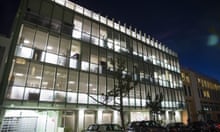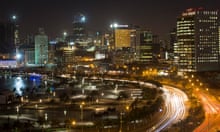Many of the most powerful supporters of the Brexit campaign appear in the Paradise Papers because of their offshore interests. There is nothing illegal about their arrangements.
But many of these same voices have urged a “hard Brexit” – which could see the UK ripping up its economic model and in effect becoming a tax haven on the borders of Europe.
That might suit Brexiters, many of whom have either made their money, or keep their money, or live, offshore.
But the prospect has horrified many Tory and Labour MPs at Westminster. The Labour leader, Jeremy Corbyn, said it would create a “bargain-basement Brexit” that would transform the country into “a low-paid tax haven on the shores of Europe”.
There is a broader debate: whether the offshore world, with the secrecy that it offers, and the tax breaks it can give, remains moral and ethical in a time of growing global inequalities.
There are legitimate questions about why people use offshore arrangements – what benefit they had, or were hoping for. Here we examine the backgrounds of some the loudest voices in the Brexit debate.
Most have publicly defended their offshore interests. The Paradise Papers offer new vignettes about them – and how they have benefited, legally, from the kind of practices that are now under more scrutiny than ever before.
Arron Banks

Banks donated £8.5m to Nigel Farage and his campaign to leave Europe and he continues to argue for a hard Brexit. He co-owns the Isle of Man-based Conister Bank with his friend and fellow Brexiter, the Isle of Man resident Jim Mellon.
The bank is part of the Manx Financial Group, which is also controlled by the two men. Last month the MFG reported a 30% rise in profits with total assets worth £174.3m.
By Banks’s own admission, Conister had been unprofitable for 25 years before he and Mellon took over more than 10 years ago. The Paradise Papers reveal previously unknown details of some of Conister’s clients. One, in particular, appeared to represent a potential high risk.
They show the bank opened accounts in 2012 for a businessman whose gambling firm and business partner were pursued by the US Department of Justice for allegedly laundering billions in illegal proceeds. Mark Scheinberg, who ran the firm, Pokerstars, with his father Isai, was an Isle of Man resident at the time, as was his father.
After the US outlawed internet gambling in 2006, individuals associated with Pokerstars, including Isai Scheinberg, were alleged by prosecutors to have processed payments from American citizens via fake websites purporting to sell jewellery or golf balls. Prosecutors claim they also persuaded small local banks to process payments in exchange for investments in their shares.
The Pokerstars founder, Isai Scheinberg, was charged by the FBI in 2011. He faced up to five years in prison and financial penalties. An Israeli and Canadian national, he was at the time living in the Isle of Man and did not return to the US to face arrest. The charges, which he denies, remain outstanding. Neither Pokerstars nor Mark Scheinberg ever faced any charges.
On 31 July 2012, Pokerstars announced it had negotiated a settlement with the Department of Justice of separate civil claims, paying $547m. The settlement was not an admission of guilt.
A day before the civil settlement, on 30 July 2012, leaked data shows Conister opened three accounts for the Dune Trust – in dollars, euros and pounds sterling. Dune’s beneficiary was Mark Scheinberg. The banking facilities were provided one month after he had paid $50m to resolve a civil legal dispute with the Department of Justice over his own profits from Pokerstars.
The Scheinbergs said there was no connection between the opening of the Dune bank accounts and the date of the settlements. The trust was never used and never held any assets, and its accounts therefore remained dormant until it was terminated in 2014. “The trust was solely for privacy reasons,” they said, and not a vehicle for hiding assets or avoiding tax.
Mark Scheinberg was at all relevant times an Isle of Man resident and as such the Isle of Man was not an offshore jurisdiction for him.
Banks is the majority shareholder of Conister but there is no suggestion he knew about this episode. A spokesman said he had “no executive power or involvement with any day-to-day activity concerning clients or their activities”.
Conister said it “wholly complies” with all anti-money-laundering obligations and firmly denied any suggestion its procedures were non-compliant or lax.
Father and son continued to operate from the Isle of Man, with the help of the law firm Appleby and various local banks, until the Pokerstars business was sold to a Canadian group in 2014 for $4.9bn. The sale is reported to have made the Scheinbergs the richest citizens of the island.
George Magan
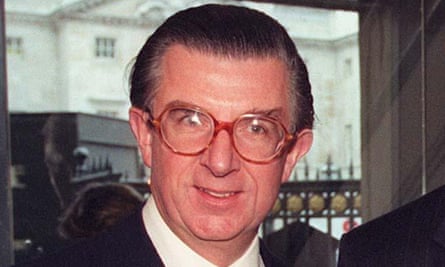
Lord Magan is a former Conservative party chairman and has donated around £1.5m to the Tories.
He helped Iain Duncan Smith on the campaign trail with the loan of a chauffeured car. Awarded a life peerage in 2011, he appears in the papers for several reasons. He is the settlor of two Jersey-based trusts that hold properties and fine art.
One of the properties is Castletown Cox in Ireland, which earlier this year became the subject of a legal battle between the family and the trustees running it.
As a director of the yacht firm Edmiston he is also involved in a Jersey company, which the law firm Appleby described as being set up to help clients who want to employ their staff through an offshore firm.
The papers state that the EU’s choice to adopt rules forcing yacht owners to pay social security contributions to their crew means they are looking to recruit through exempt companies. Magan was one of several owners of the company incorporated for this job, the Jersey-based Antennae Services ICC.
Magan did not reply to the Guardian’s request for comment. There is no suggestion he is avoiding tax.
The Barclay Brothers
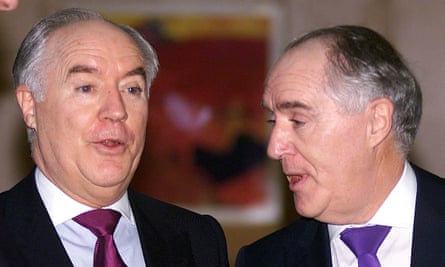
Secrecy is one of the benefits of tax havens – and it is something valued by Sir David and Sir Frederick Barclay, owners of the Daily Telegraph, who live on Brecqhou in the Channel Islands, and Monaco.
The Paradise Papers include minutes of a meeting in Hamilton, Bermuda, that show the 82-year-old billionaire twins seeking to keep their financial dealings out of sight. The meeting in 2004 of the Bermuda-based Reid Finance Ltd dealt with “a change of nominee ownership” involving BI Ltd.
The shares had been held since 1989 by David, Frederick and David’s wife Zoe. The meeting agreed to transfer the “beneficial ownership” of the shares from Zoe to the two brothers. The move meant Reid appeared as the shareholder while the brothers – the “beneficial owners” – remained in the background. The minutes describe Reid as a company used “as nominee for several of our clients who do not wish their names to appear on the share register”.
There is nothing illegal in this. But it highlights one of the criticisms of the sector. Pressure has been growing from politicians and transparency campaigners to stop the real owners of companies hiding behind bankers and lawyers.
Prem Sikka, professor of accounting at the University of Essex, said: “Nominee shareholdings add opacity and make it impossible for the authorities to call the ultimate controllers and beneficiaries of financial flows to account.”
A spokesperson for the Barclays said: “Thanks for bringing this to our attention and giving us the chance to respond. On this occasion we will not be commenting.”
Robert Edmiston
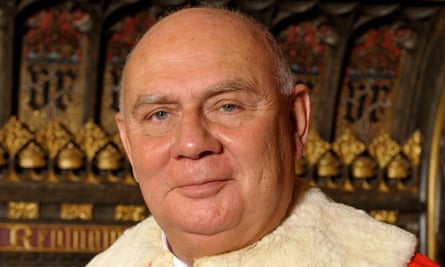
One of the biggest funders of the leave campaign, Lord Edmiston, appears in the Paradise Papers in connection with two Malta-based aviation companies.
The founder of the car importer IM Group, who is estimated to have a fortune of about £440m, gave hundreds of thousands of pounds to two Brexit groups, Vote Leave and Grassroots Out.
Edmiston, whose address is listed as being in Portugal and whose companies have donated around £4.5m to the Conservative party, was a Tory peer sitting in the Lords from 2010 to 2015, when he resigned his seat.
The Paradise Papers show him as a shareholder in a plane and helicopter company, Aircraft Operations Limited, registered in Malta, in 2016, which describes itself as selling and renting planes and helicopters.
Shares were also transferred to him the same year in another Malta-registered company, Aviation Assets Limited, in which he became a director.
Again in 2016, shares in Reston Holdings Limited, which had been shown in the Panama Papers as being registered in the British Virgin Islands (BVI), were transferred to him and registered in Malta.
A spokesperson for Edmiston said he had business and personal interests in North America, Europe, Asia and Australasia and as a result he owned companies in numerous countries throughout the world.
“His affairs are managed with scrupulous care to comply with the tax and regulatory regimes in all the countries in which he and his companies invest and operate. The specific companies and issues you refer to are already a matter of public record,” the spokesperson said.
Jacob Rees-Mogg and his Old Etonian friend
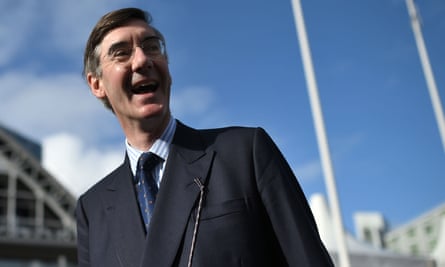
Jacob Rees-Mogg and a former school friend who has managed the MP’s multimillion-pound investments are mentioned fleetingly in the Paradise Papers leak.
Rees-Mogg is referred to because of a $680,000 payment he received when the BVI-based investment firm he worked for was bought by a Canadian bank. Rees-Mogg held more than 50,000 shares in the BVI-based Lloyd George Management at the time it was bought by Bank of Montreal in 2011. There is no suggestion he avoided tax on any profit.
Rees-Mogg’s finances are complex – and a matter of public record. He owns a company called Saliston, established in 1995 to hold property that originally belonged to his father. These days Saliston also holds his stake in Somerset Capital Management, an emerging markets fund he co-founded in 2007.
Somerset is managed via subsidiaries in the tax havens of the Cayman Islands and Singapore. There is nothing illegal about this and the MP has defended offshore tax havens. But his vast wealth has left him open to criticism that he does not understand the concerns of ordinary people. He was roundly criticised in September for saying the growth in the use of food banks was “rather uplifting”. He told a newspaper this week that politicians condemning the tax scams exposed by the Paradise Papers were “hypocritical and not very bright”.
The documents mention James Pockney, who has worked for the MP as a director of Saliston for 22 years. An investment manager who lives in England, Pockney was Rees-Mogg’s classmate at Eton. He is recorded as having approached Appleby regarding an Isle of Man company called General & Oriental Investments in 2008. There is no evidence it became a client.
Public records show a Manx company of that name was founded in 1995 and dissolved in 2011. Pockney owns a UK firm, also called General & Oriental, through which he manages investments in business ventures. The Guardian contacted both Rees-Mogg and Pockney, and they declined to comment.
Andrea Leadsom’s husband – and brother-in-law
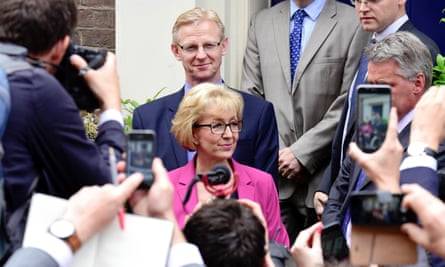
Some of Andrea Leadsom’s family income has been derived from offshore interests. Her husband, Benjamin Leadsom, has worked as a director for many years for Peter de Putron, who is married to her sister, Hayley.
A donor to the Tory party, De Putron runs a multibillion-dollar hedge fund from Guernsey. He was also the joint owner with his wife of a company, Tyrolese (Malta) Ltd. Incorporated in 2000, De Putron’s company was the single shareholder of the UK-registered Tyrolese (636) Ltd, the Paradise Papers show.
Mr Leadsom was a director of the UK entity. It was classified as a “financial intermediation” company, but accounts suggest it has been dormant and was closed in September 2012.
James Mellon and his London bar
The arch-Brexiteer and Isle of Man tax exile is a proprietor of a cocktail bar in one of London’s hippest neighbourhoods – the Hoxton Pony in Shoreditch.
In 2007, he teamed up with his longstanding business partner, the Canadian billionaire Stephen Dattels, to become a co-partner in the venture.
Rather than invest directly in a British business, Mellon created a layered structure. The bar was run by a UK-registered company, Calabrese House Ltd, which was entirely owned by an Isle of Man company, Calabrese Holdings Ltd, which had four equal shareholders.
Mellon and Dattels provided the funds, investing £500,000 each. They each held 25% via the Isle of Man. And it was the Manx vehicle that would pay out any dividends. If the bar was ever sold at a profit by its Manx parent, there would be no corporation tax to pay – because the Isle of Man does not tax company profits.
The leaked files show Appleby suggesting various ways this structure could help minimise tax. Mellon’s representative said the recommendations had not been acted on. The financier told the Guardian the bar had never made a profit, and that “the Calabrese investment has not been a good one”.
There are no tax advantages to holding the business outside the UK, according to Denham Eke, managing director of Mellon’s Isle of Man based Burnbrae Group. He added: “The reason we used an Isle of Man holding company is that we operate from the Isle of Man. It is our domicile and it is where we have our accounting and support infrastructure.”
Gerardo Calabrese, who runs the bar and holds a quarter share, said the dual Manx and UK structure was for convenience, for “minimising any cost duplication”, and had nothing to do with avoiding tax. Dattels did not respond to an emailed request for comment.
Quick GuideKey revelations from the Paradise Papers
Show
1) Millions of pounds from the Queen’s private estate has been invested in a Cayman Islands fund – and some of her money went to a retailer accused of exploiting poor families.
2) Prince Charles’s estate made a big profit on a stake in his friend’s offshore firm.
3) Extensive offshore dealings by Donald Trump’s cabinet members, advisers and donors, including substantial payments from a firm co-owned by Vladimir Putin’s son-in-law to the shipping group of the US commerce secretary, Wilbur Ross.
5) The tax-avoiding Cayman Islands trust managed by the Canadian prime minister Justin Trudeau’s chief moneyman.
6) The Formula One champion Lewis Hamilton avoided taxes on a £17m jet using an Isle of Man scheme.
7) A previously unknown $450m offshore trust that has sheltered the wealth of Lord Ashcroft.
8) Oxford and Cambridge and top US universities invested offshore, with some of the money going into fossil fuel industries.
9) The man managing Angola’s sovereign wealth fund invested it in projects he stood to profit from.
10) Apple secretly moved parts of its empire to Jersey after a row over its tax affairs.
11) How the sportswear giant Nike stays one step ahead of the taxman.
12) The billions in tax refunds by the Isle of Man and Malta to the owners of private jets and luxury yachts.
13) Offshore cash helped fund Steve Bannon's attacks on Hillary Clinton.
14) The secret loan and alliance used by the London-listed multinational Glencore in its efforts to secure lucrative mining rights in the Democratic Republic of the Congo.
15) The complex offshore webs used by two Russian billionaires to buy stakes in Arsenal and Everton football clubs.
16) Stars of the BBC hit sitcom Mrs Brown's Boys used a web of offshore companies to avoid tax.
17) British celebrities including Gary Lineker used an arrangement that let them avoid tax when selling homes in Barbados.
18) Prominent Brexit campaigners have put money offshore.
19) An ex-minister who defended tax avoidance has a Bahamas trust fund.
20) The Dukes of Westminster pumped millions into secretive offshore firms.
21) A tax haven lobby group boasted of 'superb penetration' at the top of the UK government before a G8 summit that was expected to bring in greater offshore transparency.
22) The law firm at the centre of the Paradise Papers leak was criticised for 'persistent failures' on terrorist financing and money laundering rules.
23) Seven Republican super-donors keep money in tax havens.
24) A top Democratic donor built up a vast $8bn private wealth fund in Bermuda.
25) The schemes used to avoid tax on UK property deals.
26) The celebrities, from Harvey Weinstein to Shakira, with offshore interests.
27) How a private equity firm tried to extract £890m from a struggling care home operator by making it take out a costly loan.
28) Trump’s close ally Robert Kraft, the New England Patriots owner, is the longtime owner of an offshore firm.
29) One of the world’s biggest touts used an offshore firm to avoid tax on profits from reselling Adele and Ed Sheeran tickets.
